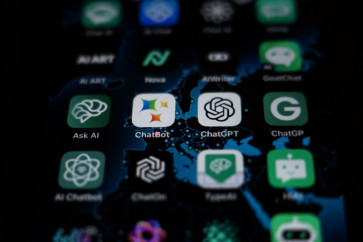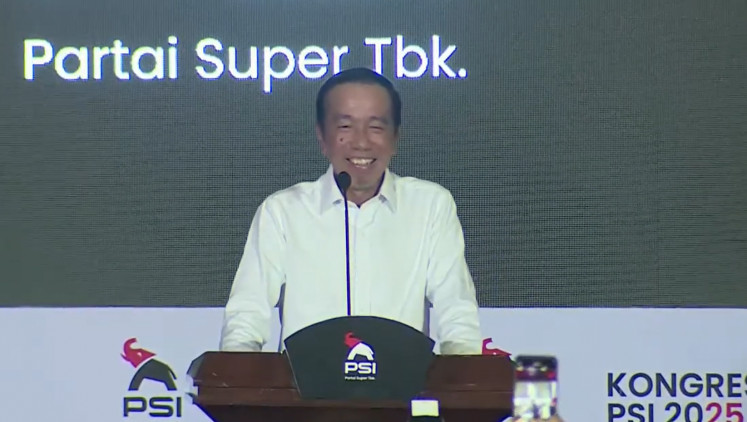Popular Reads
Top Results
Can't find what you're looking for?
View all search resultsPopular Reads
Top Results
Can't find what you're looking for?
View all search resultsUltra-micro financing combats poverty
The ultra-micro financing (UMi) credit program has given a glimmer of hope in the government’s efforts to reduce extreme poverty since its launch in the second half of last year
Change text size
Gift Premium Articles
to Anyone
T
he ultra-micro financing (UMi) credit program has given a glimmer of hope in the government’s efforts to reduce extreme poverty since its launch in the second half of last year.
This year, the government increased the budget for the UMi by 65 percent to Rp 2.5 trillion, from Rp 1.5 trillion in 2017.
The UMi is not the first credit program introduced by the government that aims to help the poor. But not all credit programs have been effective in helping micro, small and medium enterprises (MSMEs). Until the end of 2015, the number of MSMEs in Indonesia was around 61.6 million.
However, only 28.5 percent of them had gained access to funding, leaving the remaining 71.5 percent or around 44 million MSMEs unable to obtain financing. On account of rigid requirements, ultra-micro business owners are unable to get credit from banks. The UMi program plays a complementary role to the government’s existing credit programs for MSMEs.
Micro business, according to Law No. 20/2008 on MSMEs, is characterized as a business with a net worth of a maximum of Rp 50 million, not including land and the business’ building, as well as annual sales of a maximum Rp 300 million.
Ultra-micro firms, yet unbankable or not qualified to get loans from banks on account of lack of collateral, are eligible to get access to short-term (less than a year) UMi credit. In fact, the target is not micro business but ultra-micro enterprises — the scale of which is smaller than micro business. In this credit program, owners of micro businesses can apply for loans of up to Rp 10 million.
The collateral-free UMi credit program provides easy and cheap access for ultra-micro businesses to get loans. In general, banks are reluctant to give a small amount of credit due to high administrative costs. Moreover, banks normally require collateral in exchange for the credit.
The UMi credit program can be easily accessed owing to simple prerequisites defined by the government. The government eases the administrative procedures. Borrowers are only required to provide e-ID cards, business licenses and a statement that the borrowers have not received credit from other financing programs.
In addition, the UMi credit program does not limit the period of running the business as a requirement to get loans. As such, it is also feasible for startups to apply for UMi loans. However, to expand UMi financing coverage to more debtors, each debtor is only entitled to one loan only. To avoid overlapping in financing and to increase transparency, the disbursement of the UMi loan is made through the SIKP-Credit Program Information System.
The Government Investment Center (PIP) — a public service agency under the Finance Ministry, which has been named the coordinator in the distribution of the UMi program, has cooperated with a number of institutions, including 13 nonbank financial institutions, three state-owned enterprises and 10 cooperatives.
The PIP provides funds to UMi channeling institutions with low interest. Besides helping the poor to get funding, the UMi financing program protects people from loan sharks that tend to impose high interest rates on loans.
There are two programs applied for UMi financing: group lending and individual lending. In group lending, loans are given collectively through a group of people; and as a tradeoff for collateral, the microfinance institutions apply joint responsibility for the group members.
The mechanism seems to align with the Indonesian collective culture, which leads to the collective commitment to support each other.
When business owners or debtors in group lending programs become more independent and their business become enlarged, they can shift the program from group lending to individual lending. Individual lending is also targeted at new debtors with more developed businesses, as well as those who face difficulties in forming the group.
Aligned with the spirit of empowerment and enhancement, channeling institutions are obliged to give assistance to ultra-micro business debtors.
For group lending, meetings for knowledge sharing are held between the institutions and debtors. In the meeting, there will be discussion around issues facing the debtor in running the business and solutions for the problems.
The meeting also serves as a media for collecting payment to reduce collection costs and to increase repayment discipline. For individual lending, assistance normally takes form in business-related training such as entrepreneurship, sales and packing. While assistance in each program is different, they do share the same goal of enhancing financial literacy to enable ultra-micro firms to run their business
independently.
Indeed, the UMi has given opportunity for the needy to create jobs and foster entrepreneurship and self-employment. Muhammad Yunus — the winner of the Nobel Peace Prize in 2006 for pioneering microfinance — once said the crucial step to ending poverty was the creation of employment and income opportunities for the poor. By the same token, research shows that the accumulation of assets is the key for poverty eradication, which can only be gained through self-employment or entrepreneurship.
With the spirit of empowerment to foster business independence, the poor are given not only “fish” but also “bait”. As a result, the ultra-micro business owner may be able to repay their credits, while at the same time generate income to cut the vicious circle of poverty and transform it into a virtuous circle of wealth.
____________________________
The writer, who works for the Finance Ministry, holds a PhD in economics and management from the University of New South Wales, Australia. The views expressed are her own.










